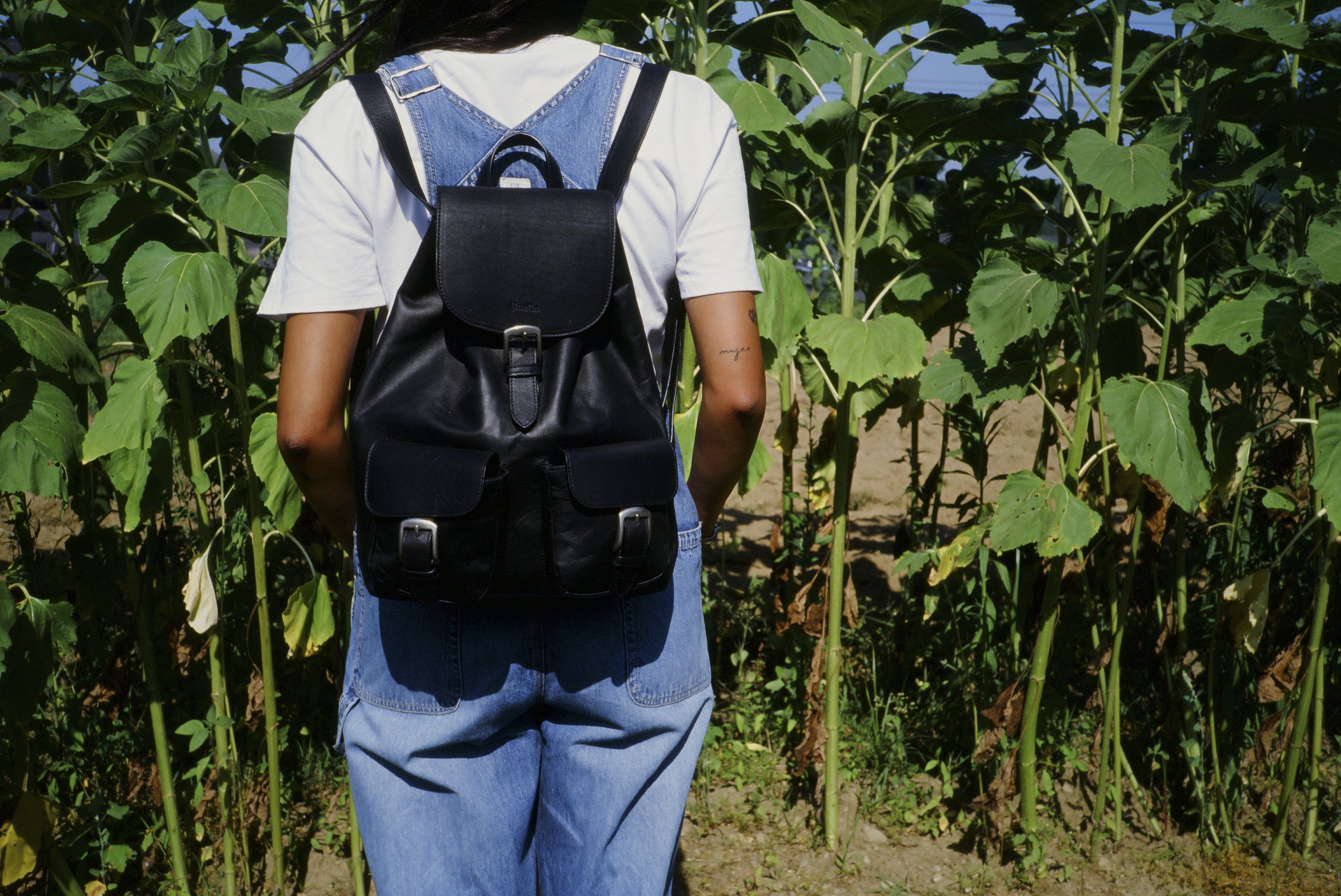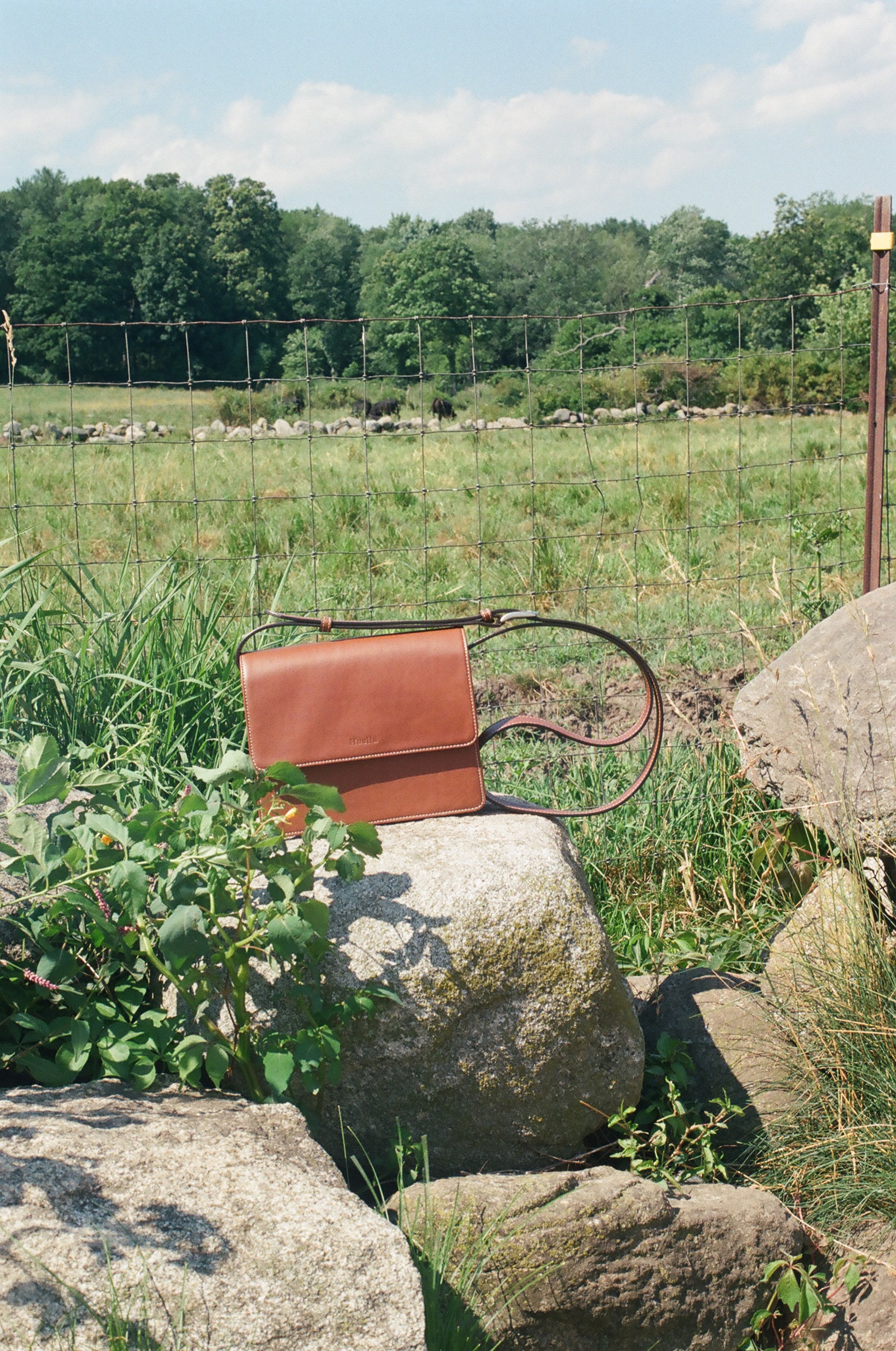July 2022 Artist In Residence- Huella Leather
Our Artist in Residence this month is Huella Leather. Pergamena is honored to be partnered with Huella and to help them complete their mission to
"Partner with clients with a commitment towards sustainability and traceability through our creation of high-quality leather products. Partnering with locally sourced farms and tanneries, Huella dedicates itself to creating heirloom goods through environmentally conscious development and production. We aim to inspire consumers to join us in making a change in buying patterns as we look to combine mankind's most ancient form of recycling with modern techniques."
Huella is launching its first line of traceable leather Today 8/1/2022 at noon! Please enjoy this write-up of my interview with the two owners of Huella, JC Portuondo and Carlos Iglesias, then hop over to their site and show them some support.
Huella leather was founded by two friends, JC Portuondo and Carlos Iglesias. These two friends set out to create a leather goods company that was better in every sense of the word. Better for the environment, suppliers, community, customers, and the world. Huella in Spanish means footprint and Carlos and JC are definitely aware of their footprint. We all have an impact on our community, and it could be good or bad. But Carlos and JC believe they have a circular system that benefits everyone in their community, not just the bottom line.
The circular system that Huella created from the ground up came out of necessity. Early in the creation of Huella, Carlos and JC visited Carlos's friend, a leather distributor, in the garment district. During their visit, they asked for details about the leather; the only information available was the region of origin. There was no information about the traceability, the farming practices, or tanning processes (except that it was chrome tanned). This lack of information was the continual trend they kept seeing with major distributors. So, they decided to explore other options. That path led them to create a network connecting farms with a meat processor, tannery, and then a manufacturer, all based here in upstate NY.
We are very fortunate to have some amazing farms here in upstate NY practicing regenerative farming. Huella has partnered with a few of these farms, including Olde Ford Farm, Hemlock Hill, and Kinderhook Farms. I asked JC and Carlos what it has been like for them to start a business built on the goal of sustainability and how they have been able to navigate the buzz terms like traceability, regenerative, and sustainability. They said they have tried to avoid catch-all buzzwords with no defined meaning, preferring instead to talk about regenerative agriculture and supply chain transparency. As Carlos said, traceable leather is great, but all that means is you can trace its source. Traceability is not a certification of the quality of the source. There is a presumed quality, but people in the industry can take advantage of this assumption. For these reasons, while their products are traceable, Huella prefers to focus on supply chain transparency and promoting the practices of their suppliers.
As for sustainability, while there is a legal definition, sustainability is relatively ambiguous, So I asked JC and Carlos what sustainability means to them. Their response was that sustainability means creating a system that supports itself, where everyone benefits and serves the community. Unfortunately, the scientific definition of sustainability has been co-opted and is now a catch-all term, like organic. Their idea of sustainability is working with people doing things responsibly and continually supporting each other in creating valuable heirloom pieces that, yes, will cost more but will also last exponentially longer. Additionally, the effects of this responsible localized system will continue to benefit the community for years to come.
But this system is not without its challenges. As you can imagine, managing the logistics has been the most challenging part of working with traceable leather. First, sourcing hides from multiple farms, then tracking them through the slaughterhouse and tanning process until the hides finally end up at their manufacturer. I asked Carlos and JC if they thought traceable leather goods were possible to do on a larger scale. They thought it would be very difficult to do traceable leather at the scale large brands produce. Brands that would be considered fast fashion generally overproduce to be able to meet an unknown demand worldwide, which means typically that many wasted products end up in landfills. That manufacturing methodology works because the material costs are so low, generally due to poor quality materials, giving them larger margins. The idea of traceability generally means sourcing high-quality hides and being transparent about the process. That would be too cost-prohibitive for companies to use their current production model with the significant rise in material cost.
At Huella, Carlos and JC wanted to redefine what scale means. To them, scale means producing as much as possible without waste, maintaining quality and good practices, and continuing their circular system that is self-sustaining. This concept of scale benefits not only those directly involved in the system but also the communities that the system exists within.
You can find out more information about Huella on their website www.huella-leather.com or follow them on Instagram at @huellaleather




